|
About
Biorhythms 
Every
one for no apparent reason, goes through periods of good form,
good self-control and periods when the mind is particularly
clear. Conversely, there are also periods when one is unable
to concentrate and the mind is confused. The reasons for these
fluctuations remain unknown. It is possible that the explanation
lies in the Biorhythmic Cycle. Biorhythms were discovered at
the beginning of the century by Swoboda, an Austrian psychologist,
and Fliess, a German doctor. Their theories have been the subject
of much research and, today, the application stage has been
reached, mainly in the U.S.A. Their theory states that human
activity goes through regular high and low periods. Based on
experiments and statistical data, the following durations of
these periods were determined:
-
23-Day Cycle For Physical Strength And Endurance,
- 28-Day Cycle For Emotional Activity,
- 33-Day Cycle For Intellectual Activity.
Originally,
there were only three known biorhythms - Physical, Emotional
and Intellectual. The Intuitional rhythm was discovered in recent
years and is considered to be less important. It's cycle is
38 days long.
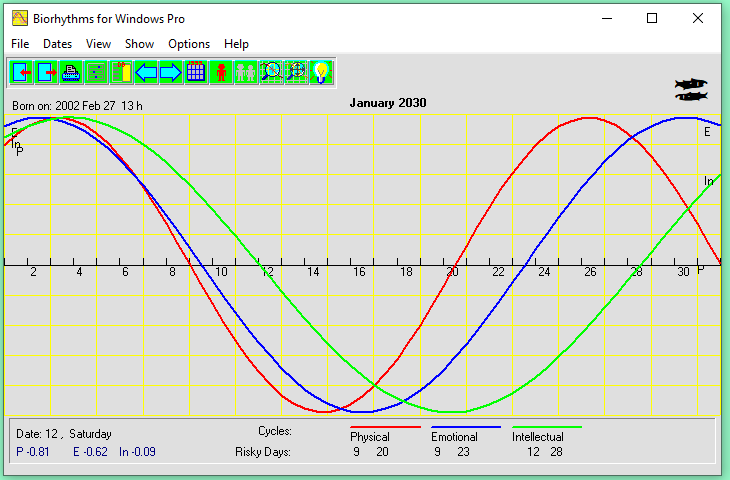
Intuitional cycle influences unconscious perception, hunches,
instincts and 'sixth sense'. On low and especially critical
days it may be difficult to do work related with art or other
tasks that require lot of creativity and intuition.
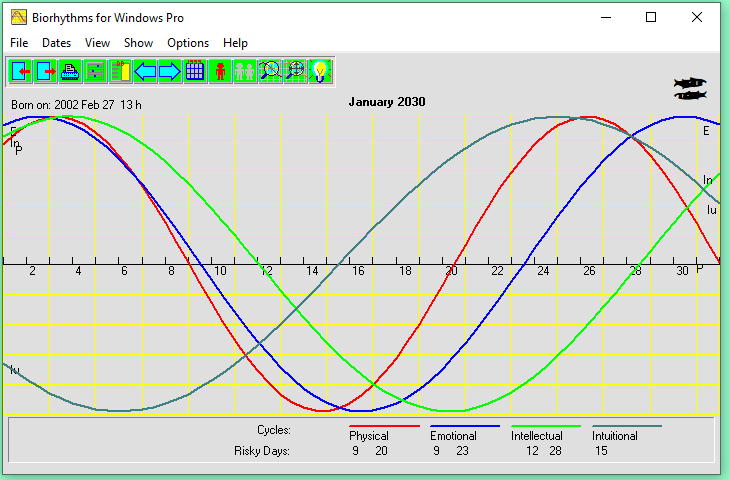
Each
picture on the screen shows three separate curves, marked P,
for Physical rhythm, E for Emotional rhythm and I, for Intellectual
rhythm. Depending upon the day of the month, the curves are
either above or below the horizontal axis, which represents
the mean level. The positive phase of each curve is above the
axis and the recovery phase is below the axis. Biorhythms may
therefore be used to forecast whether one will be in good or
mediocre form, on a given date.
By
comparison of Biorhythms of two persons you can determine degree
of their consistency. If all three curves are in the same phase,
that is for both persons they are rising and falling more or
less simultaneously, then there is a big chance that these people
are compatible and can be a good partners. If phases of curves
are almost opposite, then there is a big possibility that their
relations could be in a disharmony.
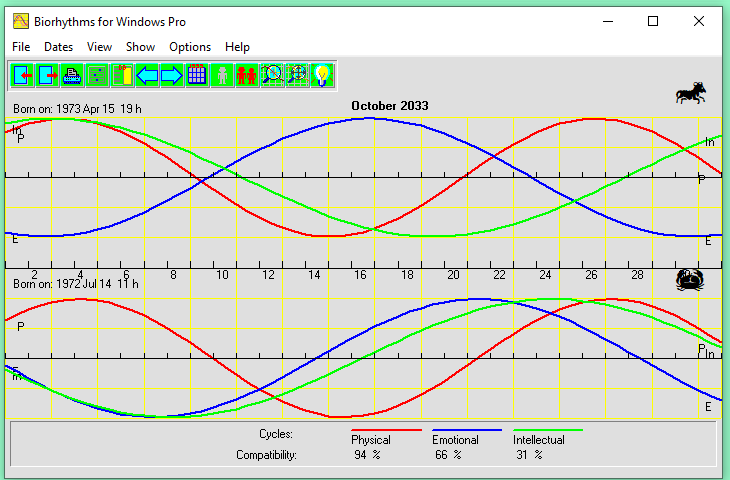
Advocates
of Biorhythm theory do not only establish calendars for the
high and low periods of our vitality, they also claim to be
able to forecast critical dates upon which the individual, in
a state of least resistance, will be exposed to more risks than
normally. These dates do not correspond to the lowest points
on the curves, as would seem logical, but to the points at which
the curves intersect the axis, i.e. the phase changes. Obviously,
when only one curve intersects the axis, which occurs regularly
and frequently, then the risk on that day is not very great.
However, if two curves change phase simultaneously, then particular
care should be taken. This is, briefly, the theory of those
who believe in Biorhythms, backed up by statistics.
The
Secondary Biorhythmic cycles - Passion, Wisdom and Mastery -
are derived from interactions of Primary Biorhythmic cycles
- Physical, Emotional and Intellectual.
Thus,
Passion is a combination of Physical and Emotional cycles. When
Passion cycle is high, your feelings and emotions are extremely
sensitive, especially love, sexual desire, lust, joy, or hatred,
anger. This cycle affects enthusiasm, stimulus, and impulsion.
From Passion comes the ability to act.
Wisdom
is created by interference between Emotional and Physical cycles.
High level of this cycle means wise judgment, better ability
of utilizing knowledge and experience with common sense and
insight. From this cycle comes the ability to discern inner
qualities and relationships and understanding of what is right.
Wisdom helps to select the right means for the best ends.
Mastery
comes from interaction between Intellectual and Emotional
cycles. Being high, this cycle enhances ability to utilize
skills, knowledge and experience in more efficient way. It
allows to complete tasks faster and with better results.
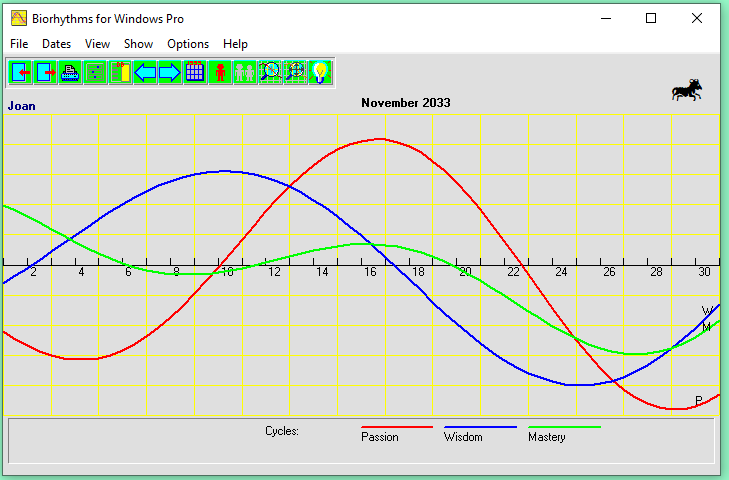
Aesthetic, Self-Awareness and Spiritual biorhythms are based on the I-Ching (also called Book of Changes), one of fundamental books of Confucianism, that was written more than 3000 years ago in China. It talks about the cycles of change including these biorhythms. It is one of the oldest surviving books in the world, and one of the oldest forms of divination.
Aesthetic cycle is 43 days long and describes interest in the beautiful and the harmonious, Self-Awareness - 48 days, it expresses ability to percept own personality and individuality, and Spiritual - 53 days, describes inner stability and relaxed attitude.
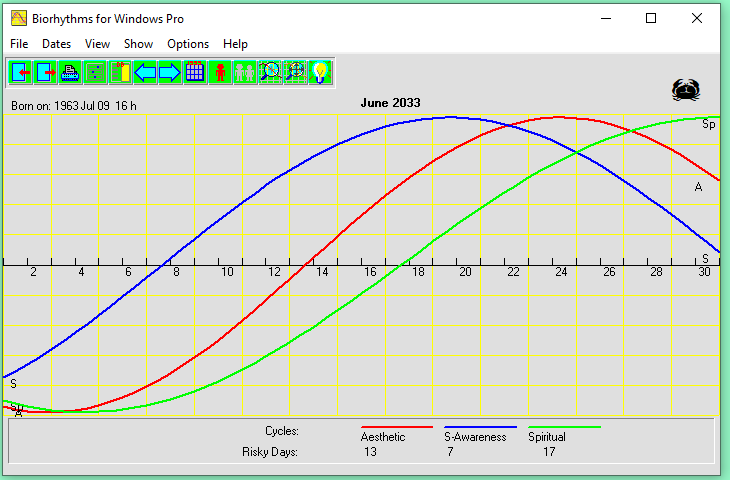
|